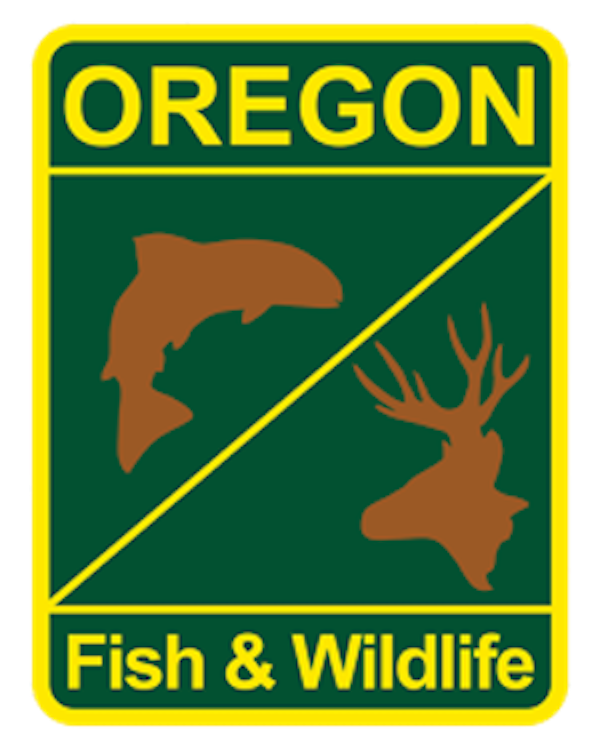Idaho Fish Report
Klamath River Report
by OR Department of Fish & Wildlife Staff
5-15-2024
Website
Keno Dam downstream to Hwy 66
The fishery below Keno Dam has been slow due to extended drought in the past. We encourage catch and release in this fishery and handling fish carefully. Fishing should improve in the next week or so as May is one of the best months to fish this area. Expect blizzard hatches of mayflies and caddisflies.
Tungsten bead headed pheasant tails and tungsten bead head caddis pupae will work well this time of year. Bait fish imitations and leech patterns also work well. The Rebel Craw crankbait is also very effective. No bait allowed!
Fishing not recommended in the old JC Boyle Reservoir riverbed as getting to the river is nearly impossible in most areas due to very deep sediments. Access to the old Topsy Reservoir bed is also prohibited by KRRC currently.
Regulations changed Jan. 1, 2024, to a bag limit of one redband-rainbow trout per day in the 12 to 15-inch size class. This regulation is to protect large redband trout spawners, chinook and steelhead smolts and adults. The river will be closed from June 15 to Oct. 1 from Keno Dam to the Highway 66 Bridge downstream.
Access is very challenging. The road into Keno Dam is very bad. A high clearance vehicle is recommended. There are other points of access that require a long hike to the river.
The river is difficult wading. Anglers who wade should have studded wading boots, wading belt, wading staff, polarized glasses and maybe a helmet and shin guards. The bottom is very slick and bedrock ledges can drop off quickly. Visibility is also poor.
Water temperature increased substantially to 60 and flows increased to 715 cfs. Turbidity has decreased to 12-20 FNU.
Check KlamatKeno Reach flows.
Once you retain your limit of redband-rainbow trout you must stop fishing for redband-rainbow trout.
Hwy 66 Bridge downstream to Springs
This section of river is open year-round. Access is currently prohibited by KRRC from Hwy 66 to the dam. Removal of JC Boyle Dam has begun. Fishing not recommended in this section due to difficult access. The Powerhouse Road on the west side of the river will be closed all year. Access to the Klamath River will be available from the Topsy Grade Road or traveling through Dorris. The Topsy Grade Road can have large potholes where vehicles can get stuck. This section of the river will require a significant hike to the river on the east side.
Regulations will change Jan. 1, 2024 to a bag limit of one redband rainbow trout per day in the 12- to 15-inch size class. This is to protect large redband trout spawners, chinook, coho and steelhead smolts and Chinook salmon, coho salmon and steelhead adults.
Springs to state line with California
The Frain Ranch section is fishable. Turbidity is well within fishable levels. Take the road through Dorris to access. This section of river is open year-round. Turbidity can be tracked by visiting the USGS Real Time Klamath River Gage.
The river should be quite fishable unless lots of water is released at Link River dam. Currently, turbidity is low at 9-14 FNU. Fishing only recommended when turbidity (FNU) is less than 40. The Powerhouse Road on the west side of the river will be closed all year. Access to the Klamath River will be available from the Topsy Grade Road or traveling through Dorris. The Topsy Grade Road can have large potholes where vehicles can get stuck.
On some days there should be good hatches of blue winged olive mayflies. Mother's Day Caddis and other caddis species are hatching. Fishing is improving with warmer weather, reduced flows and hatches of salmonflies and golden stoneflies in the near future. Patterns and lures that mimic crayfish and salmonflies should work well. Panther Martin spinner can work well down there. Dry flies that mimic caddisflies or mayflies hatching can also work well. Large yellow and orange stimulators should produce when the stoneflies start hatching.
Click here for Klamath River flow and turbidity.
Regulations changed on Jan. 1, 2024 to a bag limit of one redband-rainbow trout per day in the 12- to 15-inch size class. This regulation is to protect large redband trout spawners, Chinook salmon smolts and adults, and steelhead smolts and adults.

